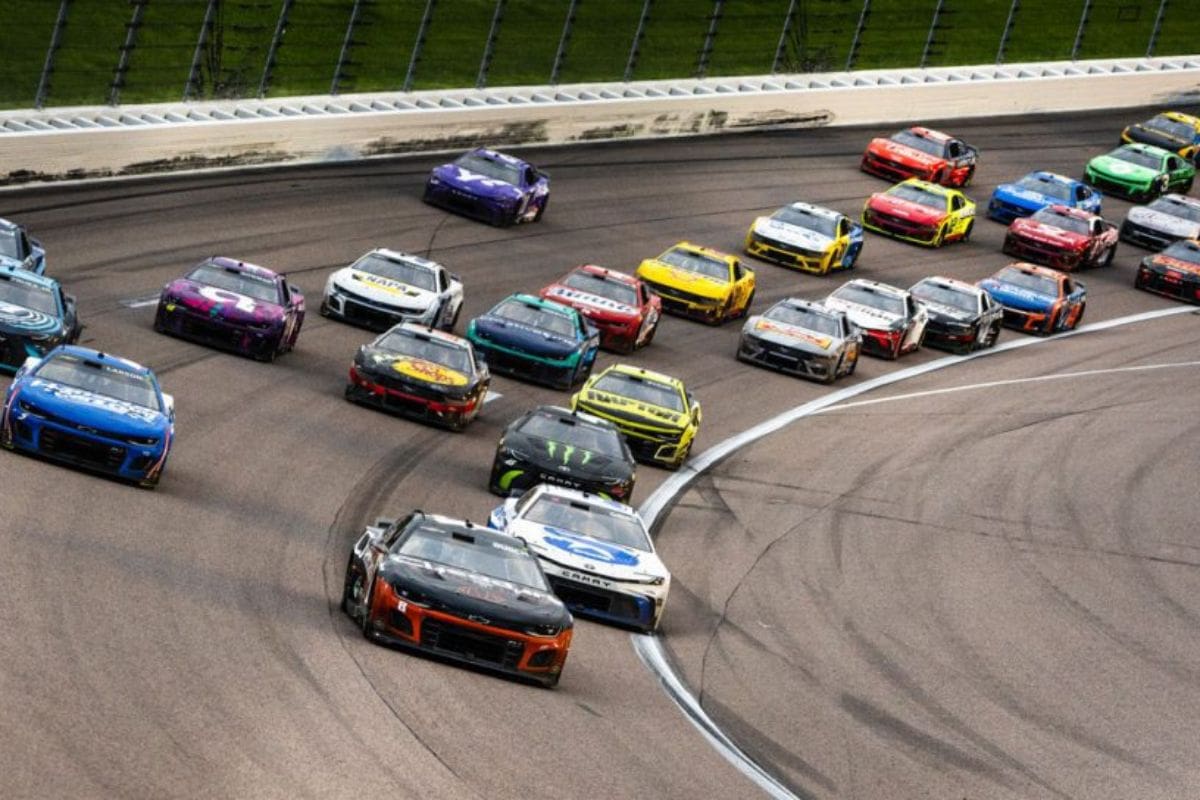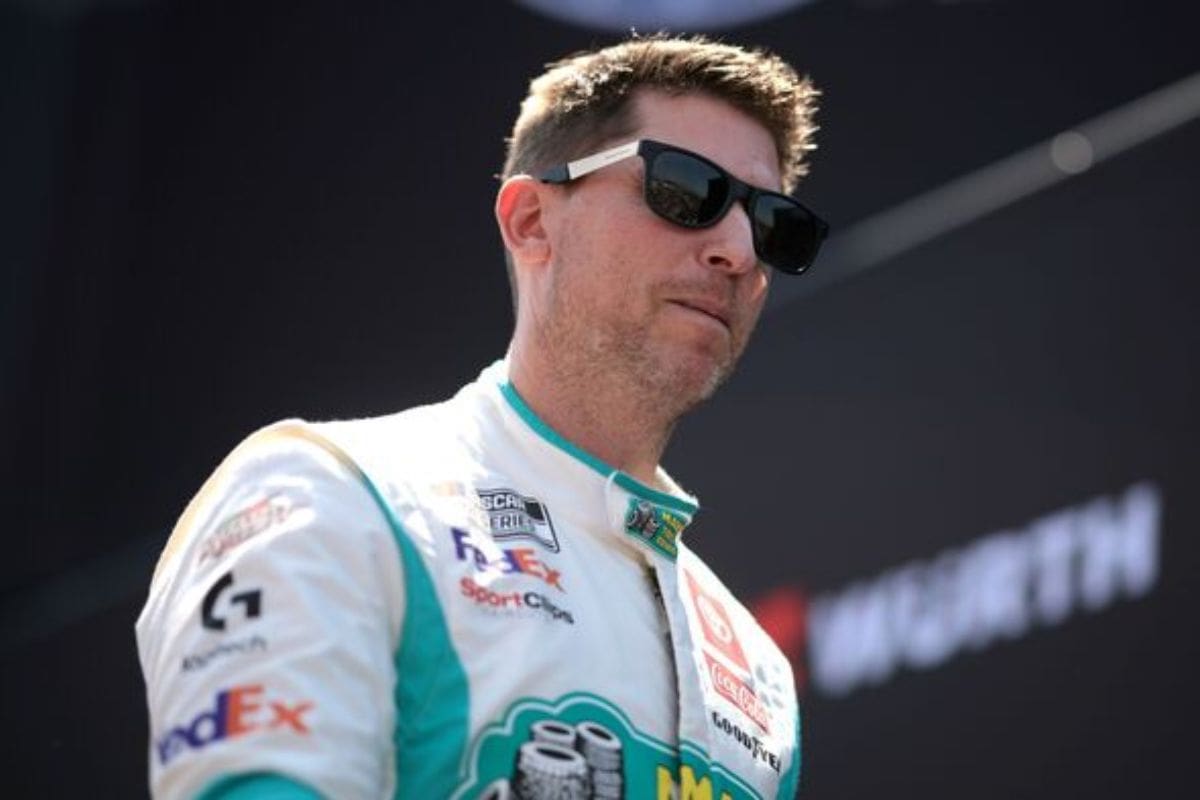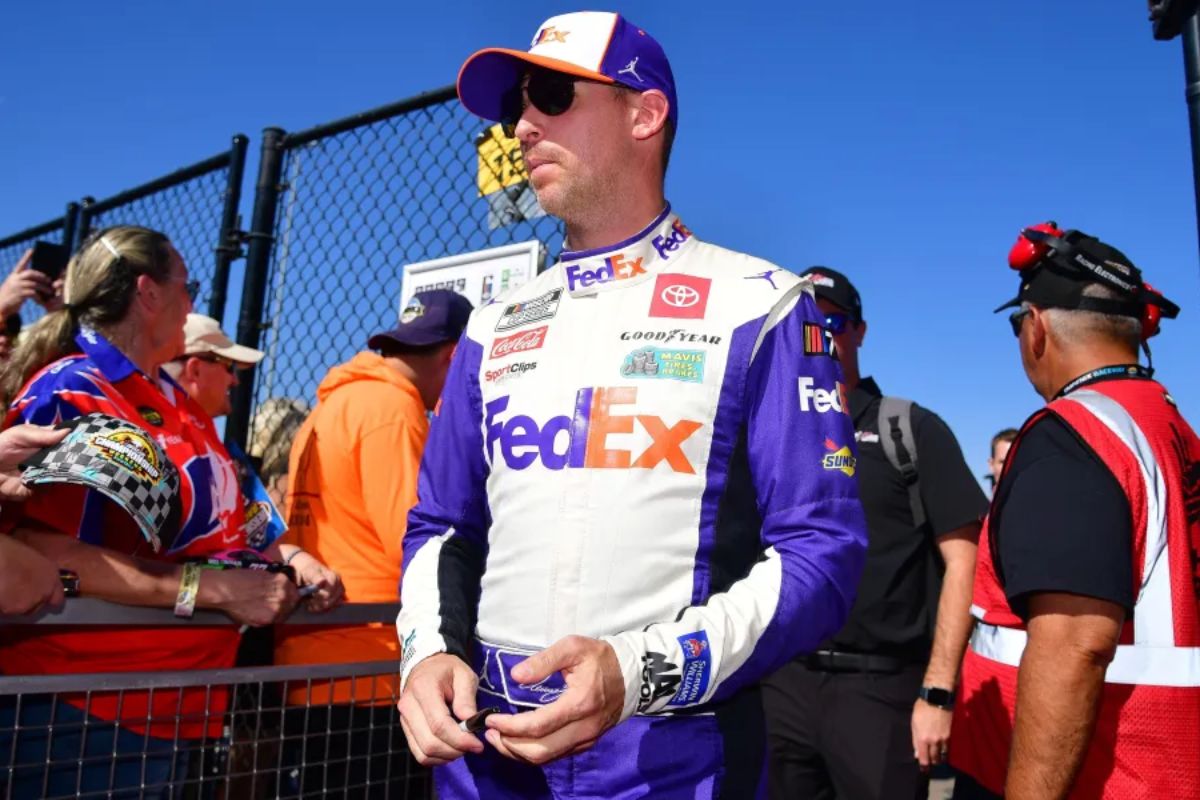Denny Hamlin Calls Out France Family: Denny Hamlin‘s recent criticisms of the France family’s leadership in NASCAR signal a crucial moment for the sport, as he highlights the widening gap between team owners and management. His call for accountability raises fundamental questions about NASCAR’s governance and its implications for financial sustainability. With the ongoing deadlock in charter negotiations, Hamlin’s perspective as a team owner emphasizes the urgent need for a reevaluation of relationships within the sport. As these tensions escalate, one must consider the potential consequences for NASCAR’s future direction and stakeholder dynamics.
Key Highlights
- Denny Hamlin criticizes NASCAR leadership for failing to recognize team owners’ investments and contributions to the sport’s success.
- The France family’s management of NASCAR faces scrutiny due to perceived neglect and disengagement from team owners and drivers.
- Hamlin advocates for a permanent charter system to ensure financial sustainability for teams amid inadequate revenue sharing from TV contracts.
- Tensions have escalated between 23XI Racing and NASCAR, highlighting the urgent need for governance reforms to address power imbalances.
- Stakeholders call for improved communication and accountability within NASCAR to foster trust and collaboration for future growth.
Charter Negotiation Deadlock
The ongoing charter negotiation deadlock has emerged as a crucial issue within NASCAR, highlighting the growing rift between team owners and the governing body. Currently, both parties find themselves at an impasse, with team owners advocating for a permanent charter system that would grant them guaranteed participation in races and a more substantial role in decision-making processes.
This push for permanence is fueled by the perception that the existing arrangement does not provide sufficient financial sustainability, as the revenue share from television contracts has proven inadequate for many teams.
Despite the evident financial strains, NASCAR leadership has largely rebuffed these proposals, maintaining the status quo that has characterized the sport’s governance. The reluctance to adapt has exacerbated tensions, leading to a deterioration of trust that previously underpinned the relationship between team owners and NASCAR’s administration.
The inability to reach consensus on charter terms not only threatens the economic viability of teams but also raises questions about the long-term tactical direction of the sport.
As the negotiations stall, the implications extend beyond immediate financial concerns; they challenge the integrity and future of NASCAR as a competitive racing entity. The friction between the France Family—NASCAR’s governing faction—and team owners signals a crucial moment that could reshape the sport’s landscape.
The deadlock may necessitate a reevaluation of NASCAR’s governance structure to foster a more collaborative environment, ensuring that both the governing body and team owners can thrive in a rapidly evolving sports market.
Denny Hamlin’s Stance
Amid the ongoing charter negotiation deadlock, Denny Hamlin has emerged as a vocal advocate for the rights and recognition of team owners within NASCAR. His position highlights the need for a paradigm shift in how NASCAR perceives its team owners, especially in view of the evolving landscape of professional sports. Hamlin emphasizes the substantial efforts and investments made by teams, arguing that they deserve more respect and consideration from the governing body.
The current model of NASCAR, unlike franchise-based sports leagues, does not afford teams the same ownership stakes in their charters. This lack of ownership has become a crucial issue as teams seek greater autonomy and influence over their futures. As an unofficial spokesperson for the Cup Series teams, Hamlin’s stance resonates with many in the industry who are frustrated with the France family’s steadfast hold over charter negotiations.
“I’m not really sure where leverage lies. I would argue both sides feel like they have some, but I think it’s more than just a frustration of a lack of acknowledgement that the teams have built this sport. (Rick) Hendrick and (Joe) Gibbs putting superstars on the racetrack – that is what has built the sport.” – hamlin
As discussions remain stagnant, it is clear that Hamlin’s advocacy is not merely a personal endeavor but a collective cry for change. The intersection of tradition and modernity within NASCAR necessitates a reevaluation of existing structures to foster a collaborative environment where both NASCAR and its team owners can thrive.
Hamlin’s Criticism of NASCAR
Denny Hamlin’s recent remarks encapsulate growing discontent among team owners regarding NASCAR’s leadership and their perceived disregard for the contributions of teams to the sport’s success. Speaking ahead of the playoffs, Hamlin articulated a sentiment shared by many within the racing community—that the foundational work of premier teams is undervalued by NASCAR’s hierarchy. He emphasized that figures such as Rick Hendrick and Joe Gibbs are instrumental in cultivating superstars who attract fans, yet their contributions remain largely overlooked.
Hamlin’s critique centers on the economic realities faced by teams. He pointed out that it is these organizations that provide the cars, invest the capital, and foster the sponsorships that drive the sport forward. His assertion, “Who spends the money? That’s the teams,” highlights a critical aspect of the equation: the financial burden shouldered by teams to maintain competitiveness and attract audiences. This lack of recognition not only detracts from team morale but also poses existential questions about the sport’s sustainability.
“They (fans) come out to sell out on Sunday to watch Chase Elliott and Kyle Larson, and Kyle Busch. So, who provides them the cars? And that’s the teams. Who spends the money? That’s the teams. Whose sponsor go by the suite? That’s the teams. That’s the tough part that, they just don’t value us.” Hamlin
Furthermore, Hamlin’s comments reflect a broader frustration regarding the balance of power within NASCAR. The argument he presents—that both sides possess influence—highlights a complex relationship where team owners feel increasingly marginalized.
As the sport evolves, Hamlin’s call for acknowledgment and collaboration illuminates a pressing need for NASCAR leadership to reassess its priorities and value the vital role of teams in shaping the future of racing. This discourse is crucial for fostering a more equitable environment that celebrates both leadership and grassroots contributions.
23XI Racing’s Public Feud with NASCAR
Within the competitive landscape of NASCAR, a notable public feud has emerged between 23XI Racing and the sport’s leadership, reflecting deeper tensions regarding governance and representation. At the forefront of this discord are Denny Hamlin and Michael Jordan, who have been vocal in their criticism of NASCAR’s operational framework, particularly concerning the charter system that governs team ownership and competition.
Unlike established teams such as Team Penske, Hendrick Motorsports, and Joe Gibbs Racing, which have largely refrained from public commentary, 23XI Racing’s frankness signals a paradigm shift in the relationship between team owners and NASCAR.
Hamlin has amplified this discord by supporting the actions of his team at Darlington, emphasizing the need for NASCAR to evolve. His assertion that “the world has changed since that mentality was set forth by Big Bill a long time ago” highlights a sense of urgency for reform within the sport. This sentiment resonates with many stakeholders who believe that NASCAR’s governance must adapt to contemporary realities rather than adhere to antiquated principles.
The implications of this feud go beyond mere disagreements; they highlight the growing divide between traditional power structures within NASCAR and the fresh perspectives introduced by newer teams. As 23XI Racing continues to challenge the status quo, the potential for groundbreaking change in NASCAR’s governance model becomes increasingly plausible, raising questions about the future direction of the sport and the role of its leadership.
Hamlin’s Investment and NASCAR’s Response
The ongoing tensions between 23XI Racing and NASCAR’s leadership have brought to light Denny Hamlin‘s substantial investment in the sport and his expectations for a reciprocal commitment from NASCAR. Hamlin, a prominent figure within the NASCAR community, has dedicated both his success and financial resources to enhance the sport, significantly through his team, 23XI Racing.
His recent remarks highlight a growing frustration regarding the lack of support and acknowledgment from NASCAR’s leadership, particularly the France family, who have historically been at the helm of the organization.
Hamlin articulated his discontent, stating, “I made a good living in this as a NASCAR driver, and I chose to invest back in the France family and NASCAR, and they are yet to show me an opportunity where I’m gonna get that back.” This sentiment reflects a broader concern among stakeholders who believe that the sport’s governance should reciprocate the loyalty and financial commitment made by its drivers and team owners.
The absence of NASCAR executives at key moments, such as the trophy presentation for Tyler Reddick at Darlington Raceway, further amplifies perceptions of neglect and disengagement from the sport’s leadership.
The response—or lack thereof—from NASCAR’s leadership could prove crucial in shaping the future dynamics of the sport.
News in Brief: Denny Hamlin Calls Out France Family
The ongoing criticisms levied by Denny Hamlin against the France family’s management highlight considerable tensions within NASCAR regarding its governance and the relationship between team owners and leadership. The challenges surrounding charter negotiations and financial sustainability further clarify the pressing need for reform. Improved communication and accountability could foster a more collaborative environment, ultimately benefiting the sport’s future. Therefore, a reevaluation of NASCAR’s operational frameworks may be crucial for maintaining its competitive viability and fostering unity among stakeholders.
ALSO READ: Denny Hamlin Slams NASCAR for Ignoring 23XI Racing’s Victory in Charter Deal Dispute



